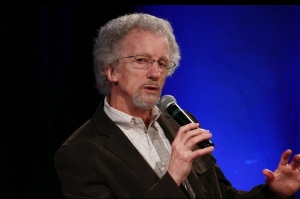Quoting Scripture is forbidden in public?

What’s that book those presidents swear in on every four years? Of course, it’s the Bible. Is it just a prop or is there meaning to that tradition?
One of the great religious liberty groups in our day is First Liberty, founded by Kelly Shackelford and based in the Dallas area. First Liberty is fighting the good fight on behalf of our nation’s first liberty, religious liberty — in the courts of the land and in the courts of public opinion.
Recently, they sent out a communique, dealing with a battle over quoting the Scriptures in a school board meeting by a school board member in the Phoenix area.
Heather Rooks is the school board member who has been banned from quoting the Bible during board meetings.
First Liberty describes what happened: “Ms. Rooks began her term as an elected member of the Peoria School Board in January 2023. During each Peoria School Board meeting, the agenda includes a brief ‘Board comments’ period where individual board members may offer remarks of their own choosing.”
And then they add, “Since the beginning of her public service on the board, Ms. Rooks has opened her comments by quoting a short scripture from the Bible. The Peoria School Board subsequently received letters from anti-religious organizations demanding it stop Ms. Rooks from reading Scripture. In August, the school board chairman instructed Ms. Rooks to stop quoting Scripture during meeting time specifically set aside for board members to comment on any topic they choose.”
Rooks told First Liberty: “I am grateful to be a part of the Peoria Unified School board. As a member of the school board, I understand the weight and significance of all of our decisions, and simply find quoting scripture out loud to be encouraging to myself and to many in attendance.”
First Liberty has now filed a lawsuit on behalf of Rooks, so that the censoring of the Bible will stop.
Four decades ago, the ACLU, which one conservative wag labeled, “the Anti-Christian Litigation Unit,” sued to halt the practice of chaplains to open the legislative sessions in the state of Nebraska because this supposedly violated the establishment clause. This case went to the highest court of the land.
In 1983, the U.S. Supreme Court decided the case in favor of chaplains. This case, known as Marsh v. Chambers, is one of the SCOTUS decisions that First Liberty mentions in this new lawsuit.
In that case, the Supreme Court declared, “The practice of opening sessions of Congress with prayer has continued without interruption for almost 200 years, ever since the First Congress drafted the First Amendment.”
Did the founders want America to be a secular wasteland? Not at all. The Bible was very important to those who founded this country. Some of them served in Bible societies, in order to distribute the Scriptures throughout the land.
When Bibles that had been printed in England ran out during the 1770s, the framers even voted to recommend a Bible published by a Philadelphia-based printer.
In the streets of Philadelphia, to this day, not too far from Penn’s Landing and Delaware River Waterfront, you can see a sign highlighting the Robert Aiken Bibles.
Here’s what the sign says: “Robert Aitken (1734-1802). An influential revolutionary-era printer, he operated a shop on this block. In 1782, Aitken printed the nation’s first complete English Bible. It received the endorsement from Congress and was the only new Bible available to colonists due to printing restrictions and import embargoes.”
Bridwell Library Special Collections explains, “When America declared its independence from Britain at Philadelphia in 1776, America’s printers were no longer bound by the Royal Patent prohibiting the production of English Bibles in the colonies.”
Indeed, on September 10, 1782, Congress declared: “Whereupon, Resolved, That the United States in Congress assembled...recommend this edition of the Bible to the inhabitants of the United States, and hereby authorize [Robert Aitken] to publish this recommendation in the manner he shall think proper.”
The Bible was important to virtually every founder of America. For example, John Adams made this entry in his diary on February 22, 1756: “Suppose a nation in some distant Region should take the Bible for their only law Book, and every member should regulate his conduct by the precepts there exhibited! Every member would be obliged in conscience, to temperance, frugality, and industry; to justice, kindness, and charity towards his fellow men; and to piety, love, and reverence toward Almighty God ... What a Eutopia, what a Paradise would this region be.”
Today’s secularists are on a mission to drive any vestige of our nation’s Christian heritage out of the public arena. But it is precisely that Biblical legacy that has given us our liberty. May the Bible be proclaimed throughout the land for freedom’s sake, yes, even at school board meetings.
Jerry Newcombe, D.Min., is the executive director of the Providence Forum, an outreach of D. James Kennedy Ministries, where Jerry also serves as senior producer and an on-air host. He has written/co-written 33 books, including George Washington’s Sacred Fire (with Providence Forum founder Peter Lillback, Ph.D.) and What If Jesus Had Never Been Born? (with D. James Kennedy, Ph.D.). www.djkm.org? @newcombejerry www.jerrynewcombe.com


























